Roaches can’t chew through metal or healthy wood, such as supporting beams, heating ducts, or pipes. Cockroaches can burrow into electrical outlets and conceal themselves in household appliances, such as coffee makers and microwave ovens. However, once the infestation is removed and kept out, the property can be recovered.
Unless a property was in a poor structural state or compromised condition, cockroaches don’t cause lasting harm to your home. However, cockroaches can burrow into insulation and damage your furniture. If roaches get inside electronics, this can cause the circuitry to burn out, leaving dark burn marks.
Any damage to the home caused by roaches will usually be temporary once the infestation has been completely removed and cleaning performed. You may have to replace some electrical outlets, perform some basic repairs, and do some painting and decorating, though.
Can Cockroaches Damage Your House?
Cockroaches aren’t like termites. They don’t eat through wood or chew household items. These pests prefer to nest in locations that are already well suited to their needs. These places may include:
- Underneath cabinets
- Inside basements, attics, and walls
- Inside your electronics, like kitchen appliances or gaming systems
- Around toilets
- Drains
These are places that don’t require burrowing, clearing out debris or other preparations. Roaches can squeeze through small gaps, get inside, and make their home.
Do Cockroaches Damage Heating Ducts?
Cockroaches will not cause physical damage to the inside of your heating ducts. Most ducts are composed of metal of varying thicknesses. Roaches have small mandibles used for chewing. They can only gnaw through softened materials, like rotting leaves, carcasses, or wet wood. They cannot chew through metal.
Beyond that, roaches would not need to do so as metal has no nutritional value. Likewise, roaches can squeeze through small openings with no need to chew their way in.
These ducts also contain vents and vent covers at either end of them. These are designed to filter out dust or other irritants from the air. Roaches may be able to sneak in through the vents and make a home inside. Air ducts are tempting to roaches because they:
- Provide heat. The heat that your ducts contain and circulate makes a good home.
- Offer seclusion. Heating ducts are rarely cleaned or inspected.
- Contain food. These ducts gather skin cells, hair, and dust as a source of food.
That doesn’t mean roaches won’t cause any damage. Heating ducts distribute warm air throughout the home. If cockroaches live in these heating ducts, they will blow contaminants throughout your home.
Do Cockroaches Damage Drainage?
Roaches can live in pipes, drains, or gutters. The damage they cause will depend on the type of drainage.
Gutters
Outside your home, roaches may live in the gutters that line your rooftop. As long as you don’t experience steady or frequent rain, they won’t mind the location. While there, these pests will feed on:
- Leaf debris
- Dead insects
- Rotting birds and creatures that get stuck in the gutters
- Anything that begins to decay
As mentioned, roaches can’t eat through thick metal. However, as with your air ducts, they can still cause damage. A roach nest will leave behind its own dead carcasses and shed exoskeletons. This will be too minor to block your gutters, but it will exacerbate any existing blockages.
Sink And Shower Drains
Roaches may come up through the sewer and into your drains. They may also scurry down the drains to find shelter inside your kitchen or bathroom. In the garage, you may find wild roaches wiggling into your pipes and living in your empty floor drains.
No matter the case, roaches can’t damage your drains. They cannot eat metal, and nothing in their biology is corrosive to metal. However, their presence can lead you to damage the drains.
If you see roaches inside your kitchen sink, you may pour bleach down. This, like other corrosive materials, can corrode the insides of your drains. The metal will thin and weaken, eventually causing a leak.
Pipes
You may be concerned about roaches sneaking in through cracks in your plumbing. Any pipes that line your foundation or weave through your walls could be at risk of an infestation.
The main pipes are no different from your kitchen drains. Roaches cannot harm the pipes by living inside them. However, if you pour corrosive substances into the pipes, you can damage them.
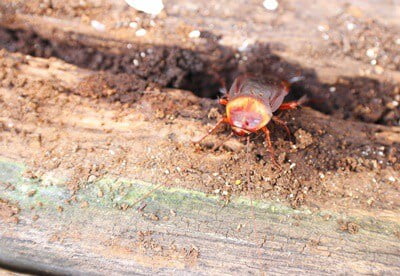
Do Cockroaches Damage Insulation?
Roaches can damage the insulation in your walls. It won’t be their favorite place to nest. They will usually pick open spots that give them better access to food. For example, they’ll tuck themselves under your cabinets before they dig into your insulation. However, if they find a gap in your wall and burrow in, they can damage the insulation.
Certain homes have their walls filled with classic pink insulation. This is tacked onto thick paper and laid in between the beams. This insulation is easy to tear, even by hand. Roaches will be able to squeeze themselves in between the fibers and make a home. The insulation itself won’t offer nutritional value, so it’ll be ignored in favor of other food sources.
Sprayed insulation is far more resilient against roaches. It’s thicker in texture and can pack into your walls far tighter. This makes it difficult for a roach to find purchase when behind your drywall. Nonetheless, roaches can still use their mandibles to chew through this. Eventually, they may burrow out space for a nest. Once roaches have made a home in your insulation, they can:
- Live unchecked in these spots since you won’t usually pull down walls in search of them.
- Benefit from the warm, temperature-controlled area to breed.
- Create pockets and gaps in the insulation, which reduces its effectiveness.
Cockroaches won’t eat the insulation unless they’re starving. If they do, they’d likely die from the borate that’s infused within the material. To stop the infestation, use caulk and sealant to prevent entry. These can include:
- Gaps between walls
- Gaps between floorboards or tiles
- Cracks in brickwork
- Gaps and holes around utility penetration points
Do Cockroaches Damage Wood?
In the wild, certain species of cockroach do eat wood. They will chew through the material, making nests, and eating wood for nutrients. However, that’s not the case with species that like to live in our homes. Cockroaches cannot do any permanent damage to healthy, solid wood. That’s because:
They Like Wet Or Rotting Wood
If cockroaches do chew on your beams, it won’t do much damage to them. In the wild, roaches prefer to eat wood that is rotting. If your basement has flooded and it’s been left that way, you may find that the beams are rotting and decaying. However, the healthy beams in your home are not at risk.
Need Numbers
Likewise, cockroaches only have small mandibles. While their biting power is impressive for their size, it’s not enough to chew through solid pieces of wood.
Even if roaches had access to rotting beams, it’s unlikely that they could chew through entire beams. You might find bite marks if you had a large infestation due to more roaches chewing the structure.
Even in this case, roaches are not nearly as harmful as termites are to your property. You’ll be affected by the health concerns caused by roaches long before the structural integrity of your home was put at risk.
Do Cockroaches Damage Electronics?
Cockroaches, especially the smaller species, will make a home inside electronics if given the opportunity. This includes:
- TVs
- Computers and keyboards
- Kitchen mixers
- Gaming consoles
- DVD or BluRay players
- Refrigerator wiring
- Ceiling fan wiring
- Air conditioning units
Once roaches get inside your electronic circuitry, they can wreak havoc. These pests won’t eat the wiring, but they will start to congregate in these areas. That could:
- Block air vents, causing the appliances to overheat
- Smear droppings against circuit boards, causing them to burn out
- Stack up dead roaches against the inner workings, causing them to jam
- Shed exoskeletons, causing the electronics to block up or overheat
- Lay eggs against the parts, which may cause them to short-circuit. That’s mainly due to the sticky substance used to attach the egg sacs.
This will be dangerous for smaller devices, which have more delicate parts. Your refrigerator, for example, may have a roach infestation for some time before showing damage.
However, your gaming console might break down right away. The fragile wires, plugs, vents, and circuit boards may stop functioning and could even cause a house fire in the worst-case scenario.
Do Cockroaches Damage Fabric?
Cockroaches can harm fabric. It won’t be their first choice, as they prefer food in your kitchen or organic waste in your bathroom. However, if the population is allowed to grow unchecked, they may expand their dietary needs. Homes contain many different kinds of fabric, such as:
- Clothes
- Curtains
- Carpets
- Soft furnishings, such as sofas and chair cushions
A cockroach infestation may seek out these fabrics if they’re affected by:
- Food
- Sweat
- Dead skin
- Pet or human hair
- Bodily fluids
Do Roaches Eat Furniture?
Cockroaches that like clothing and soft furnishings are not trying to eat the fabric. Instead, they are trying to eat the traces of edible substances found on them. Any damage to the material itself will be incidental, but lasting. As such, prime targets will be:
- Dirty clothes that have been left unattended
- Rugs that may have crumbs in them
- Carpets that have seen food spillage
If a cockroach is starving and unable to find better food sources, it may also begin to chew on the fabric, but this will be a last-ditch effort. Even if they do, these tears will be hard to notice.
Do Cockroaches Leave A Bad Smell In Your Home?
If an infestation is large enough, cockroaches will leave behind a smell. This scent will be musty and oily, often compared to mothballs or soy sauce that’s gone bad.
The smell will begin to dissipate once the cockroaches have been eliminated. That’s because the smell mainly comes from the pheromones that cockroaches produce. Once the pests are gone, the smell will no longer be generated.
You can also reduce the smell with some deep cleaning. Be sure to take soapy water and thoroughly scrub down infested areas, especially areas coated in their droppings. The musty smell will quickly subside.
Does Cockroach Poop Stain?
Cockroaches spread the dirt and bacteria they gather on their travels through contact and their droppings. Because they are adept climbers, they can spread germs everywhere in your home. You could find roach poop smeared along:
- Curtains
- Floors
- Walls
- Countertops
- Clothing
- Ceiling
The poop will appear dark brown or black. It tends to be irregularly shaped and has a translucent, brownish color. When smeared, it will be oily in texture and spread thickly. Smears will be found on horizontal surfaces and at the junction between the wall and floor. These marks are found in concentrated areas where the infestation was based.
Are you left to repaint or throw out everything that’s been affected? Roach poop does not stain. The oily, thick nature means that you need to scrub it more thoroughly out of fabrics. If you have white materials, then bleach is a way to remove any traces. However, it can be easily scrubbed off of walls, floors, and countertops.
Properly sanitize the area once you’re finished. Cockroach poop may not stain, but it still contains:
- Bacteria
- Disease
- Fungi
- Pheromones
Does Cockroach Urine Stain?
The act of urinating serves a purpose for most creatures, allowing them to dispel nitrogenous wastes from their body. This is in a liquid form. However, roaches have a more complex way of dispelling nitrogen. Cockroaches don’t pee.
According to the Proceedings of the National Academy of Sciences, roaches use a bacteria known as Blattabacterium to process the components found in urine. These are transformed into uric acids and further processed into nutrients that cockroaches will reprocess.
They self-recycle to keep themselves stronger and healthier. Because of this, you don’t have to worry about finding cockroach urine stains around your home.
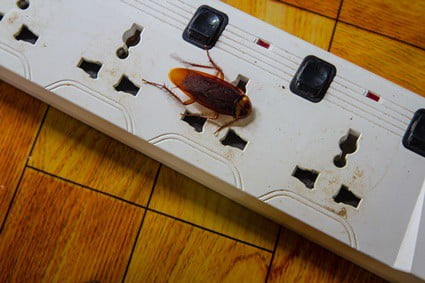
Do Cockroach Nests Leave Stains?
If you locate a roach nest, you won’t find a bundle of twigs or gathered materials. Unlike other insects, cockroaches don’t “build” nests. Instead, they cluster around an area that’s safe for them to gather and hide. This will be in damp or warm areas, like behind your refrigerator. However, you will recognize a nest once you see it. It will contain:
- Shed exoskeletons. These will be greater in number if your infestation is large.
- Dark smears. This will be cockroach poop that’s accumulated and been spread around.
- Dead roaches. A cockroach’s lifespan depends on the species but is short. You may find previous generations.
- Egg cases. If the infestation is not too heavy, roaches will lay their eggs inside their nest.
This will likely be accompanied by live roaches and a musty smell. Even if you clean away the dead roaches and skins, will the area be permanently affected? A roach nest will not cause any irreversible damage.
You can use soap, water, and bleach to sanitize the area once you’ve removed the nest. The only time a roach nest leaves permanent damage is:
- When there was already moisture or rot in the area, such as with flooded basements
- When the roaches have burrowed through a small hole in the wall, thus broadening the hole.
- There has been short-circuiting in electronics, such as behind the refrigerator. This may cause minor fire damage.
Can Roaches Make A Home Unlivable?
You may be worried that a severe infestation will drive you out of your home, but this is rare. You’ll have noticed the roach problem long before it reaches this stage. That only changes if you:
- Have asthma
- Have children with conditions that affect their breathing
- Are immunocompromised
Roach exoskeletons, droppings, and bacteria may affect the air that you breathe. If so, it may be better to stay somewhere else while exterminators remove the problem.
Should You Buy A House With Roach Damage?
Houses left uninhabited may become a prime living space for roaches. If you’re purchasing a home that’s been foreclosed upon and left empty for some time, you may be concerned.
Any damage the roaches have caused to the home will not be permanent. You’ll experience far more hardship from other kinds of insects that may have moved in. Aside from that, cockroaches prefer homes with people inside because there will be food available, and the living environment will be temperature controlled.
Can Roaches Contaminate A Home?
Since these pests leave behind contagions, you may be concerned about the lasting effects of the infestation. Will your home remain ‘infected’ even if it’s no longer ‘infested’?
Once the roaches are eliminated and the remains cleaned out, no contagions will linger. If the home is not properly cleaned, however, that obviously won’t be the case.
The World Health Organization has said that cockroaches pose a risk to the health and well-being of people living in infested properties. Of course, there are other factors at play, too. Studies in Environmental Health Perspectives, for example, found that pest infestations are connected to poor-quality housing, poverty, and co-occurring health issues.
Roaches cause many health issues, directly and indirectly. Their droppings can create airborne particles that aggravate asthma. These pests can also spread disease and infection. They are carriers of organisms that cause illnesses such as:
- Diarrhea
- Dysentery
- Poliomyelitis
- Leprosy
- Typhoid fever
- Dermatitis and other skin infections
- Cholera
That’s because they move freely through drains, sewers, and yards. This allows them to bring in other small pests and their eggs. For example, they carry parasitic worm eggs that can infect your water supply and food, leading to illness.
If you’ve experienced a serious infestation, you should decontaminate the area right away. However, a home that was in good condition will likely be able to survive a cockroach infestation. Once the roaches have been removed, the property cleaned up, and basic repairs made, there shouldn’t be too many lingering effects.
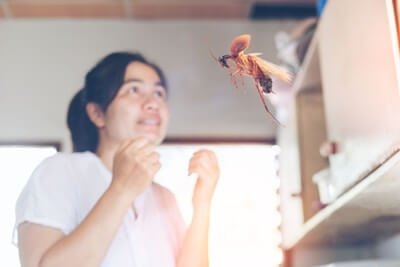
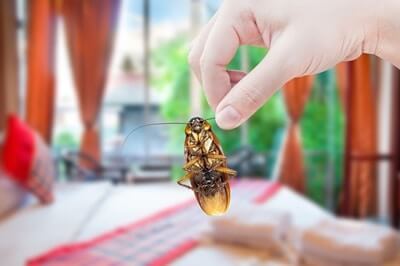
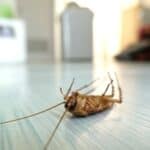

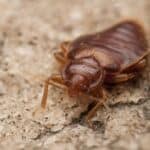
It’s great to come across a blog every once in a while that isn’t the same out of date rehashed material. Fantastic read.